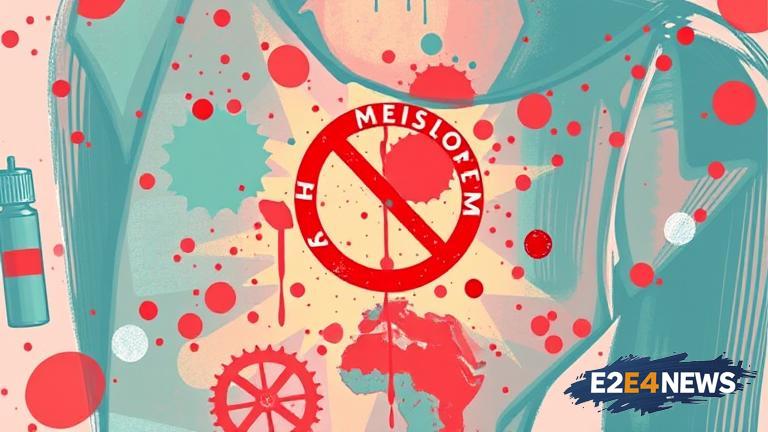The recent surge in measles cases has sparked a heated debate about the importance of vaccination and the risks associated with not getting vaccinated. As the number of measles cases continues to climb, health officials are sounding the alarm about the potential consequences of not vaccinating. Measles is a highly contagious and potentially deadly disease that can have serious complications, especially for young children and individuals with weakened immune systems. Despite the risks, some individuals remain opposed to vaccination, citing concerns about the safety and efficacy of vaccines. However, the overwhelming scientific consensus is that vaccines are safe and effective in preventing the spread of diseases like measles. In fact, the measles vaccine is estimated to be 93% effective in preventing the disease after one dose and 97% effective after two doses. Nevertheless, some people continue to opt out of vaccination, often citing personal or philosophical reasons. This has led to a decline in vaccination rates in some areas, creating pockets of vulnerability where outbreaks can occur. The consequences of not vaccinating can be severe, not just for the individual but also for the broader community. When vaccination rates fall below a certain threshold, it can create an environment where diseases like measles can spread quickly. This is particularly concerning for individuals who are unable to get vaccinated due to medical reasons, such as those with compromised immune systems. Furthermore, the economic burden of measles outbreaks can be significant, with costs ranging from hundreds of thousands to millions of dollars. In addition to the financial costs, measles outbreaks can also have a significant impact on public health resources, diverting attention and resources away from other important health issues. As the measles outbreak continues to spread, health officials are urging individuals to get vaccinated and to take steps to protect themselves and their loved ones. This includes practicing good hygiene, such as washing hands frequently and avoiding close contact with individuals who are sick. Moreover, health officials are working to identify and contain outbreaks, often through extensive contact tracing and vaccination efforts. Despite these efforts, the rise in measles cases serves as a reminder of the importance of vaccination and the need for continued vigilance in protecting public health. The World Health Organization has identified vaccine hesitancy as one of the top ten global health threats, highlighting the need for continued education and outreach efforts to promote vaccination. Ultimately, the decision to vaccinate is a personal one, but it is essential to consider the potential consequences of not vaccinating, not just for oneself but also for the broader community.
